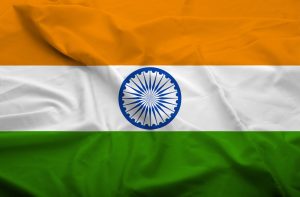As an emerging great power, a positive role for India within the Indo-Pacific is considered vital by countries like Australia, the United States, and Japan. All three have been keen to enhance relations with New Delhi, and also encourage India to play a more active role in regional architecture through initiatives like the Quad. While India’s direct interests currently lie closer to home, there are compelling reasons why its engagement with Pacific Island countries should form part of New Delhi’s broader strategic vision.
Through its promotion of the Indo-Pacific Ocean Initiative, New Delhi has recognized the importance of maintaining maritime norms that safeguard its security and economic interests. Obviously, India remains heavily focused on the Indian Ocean, yet given that the concept of the Indo-Pacific identifies both the Indian and Pacific oceans as a single strategic zone, there is impetus for New Delhi to understand the Pacific and seek to enhance its presence there.
The Pacific Islands hold an important strategic role in the Indo-Pacific, not only because there are a great many states that can collectively prove a powerful force in multilateral institutions, but because these countries are at the forefront of climate change, the other major security concern of our era, alongside China. Cooperation on resilience, adaptation, and prevention is critical to New Delhi enhancing its reputation in the region. India has a chance to prove its intent and leadership of the Global South at COP28, beginning this week.
Pacific Island countries – given their geographies – are also often deeply invested in maritime norms around fishing and safety. Although small in landmass, these countries have large exclusive economic zones (EEZs). For India to advance its influence in these areas globally, strong relationships with Pacific Islands are vital. It is Pacific Island countries that are often at the forefront of combating illegal, unreported, and unregulated fishing, while a current reliance on outdated vessels in the region makes maritime safety a primary concern.
Over the past decade India has made an effort to build greater cooperation with Pacific Island countries. In 2014 New Delhi launched the Forum for India-Pacific Islands Cooperation (FIPIC). The forum experienced a lull after its second meeting in 2015, but a third iteration took place earlier this year during Prime Minister Narendra Modi’s visit to Papua New Guinea.
Amid the visit, India announced a suite of new initiatives to enhance cooperation in the region. These included enhancing regional healthcare infrastructure – with a new regional hospital in Fiji, the provision of dialysis units throughout the region, and providing new sea ambulances. The last point is of critical importance due to the region’s remote islands often not having the health infrastructure to handle serious conditions.
Alongside this, India is also planning on opening a regional IT and cybersecurity training hub in Papua New Guinea, a critical component of both skills enhancement and defending government systems against cyber threats. Understanding the essentials of energy and water security, India also announced cooperation on solar projects and desalination units.
Many of these initiatives are a positive recognition from New Delhi that the unique geographies of Pacific Island countries provide distinct challenges in service delivery. This engagement also functions as an extension of India’s Act East policy, which primarily seeks to enhance cooperation with Southeast Asia as a response to China’s rise. Reaching further out into the Pacific demonstrates New Delhi’s strategic intent on being a balancing actor, but also an important power in its own right.
Although New Delhi has limited diplomatic missions in the region, it does have a natural hub in Fiji, with its large Indo-Fijian population. As a result, most of India’s cooperation with the Pacific is understandably focused on Fiji. Fiji’s influence within the Pacific also provides India with an ability to be engaged with the broad collective concerns of the region, but this shouldn’t come at the expense of forming more intimate bilateral relationships with other countries in the Pacific. The opening of further diplomatic missions would signal this intent.
As India’s global reach expands, an understanding of Pacific Island countries as “large ocean states” rather than “small island” ones should place these countries more in New Delhi’s radar. This perspective makes these countries central to many of the current challenges of our era – particularly climate change and maritime security. India’s engagement in the Pacific will also be a demonstration of what kind of great power it seeks to be. States like those in the Pacific are reliant on larger states to commit to the responsibility of mutually beneficial rules and norms. Advancing these rules and norms would buy New Delhi a great deal of goodwill in the Pacific.

































